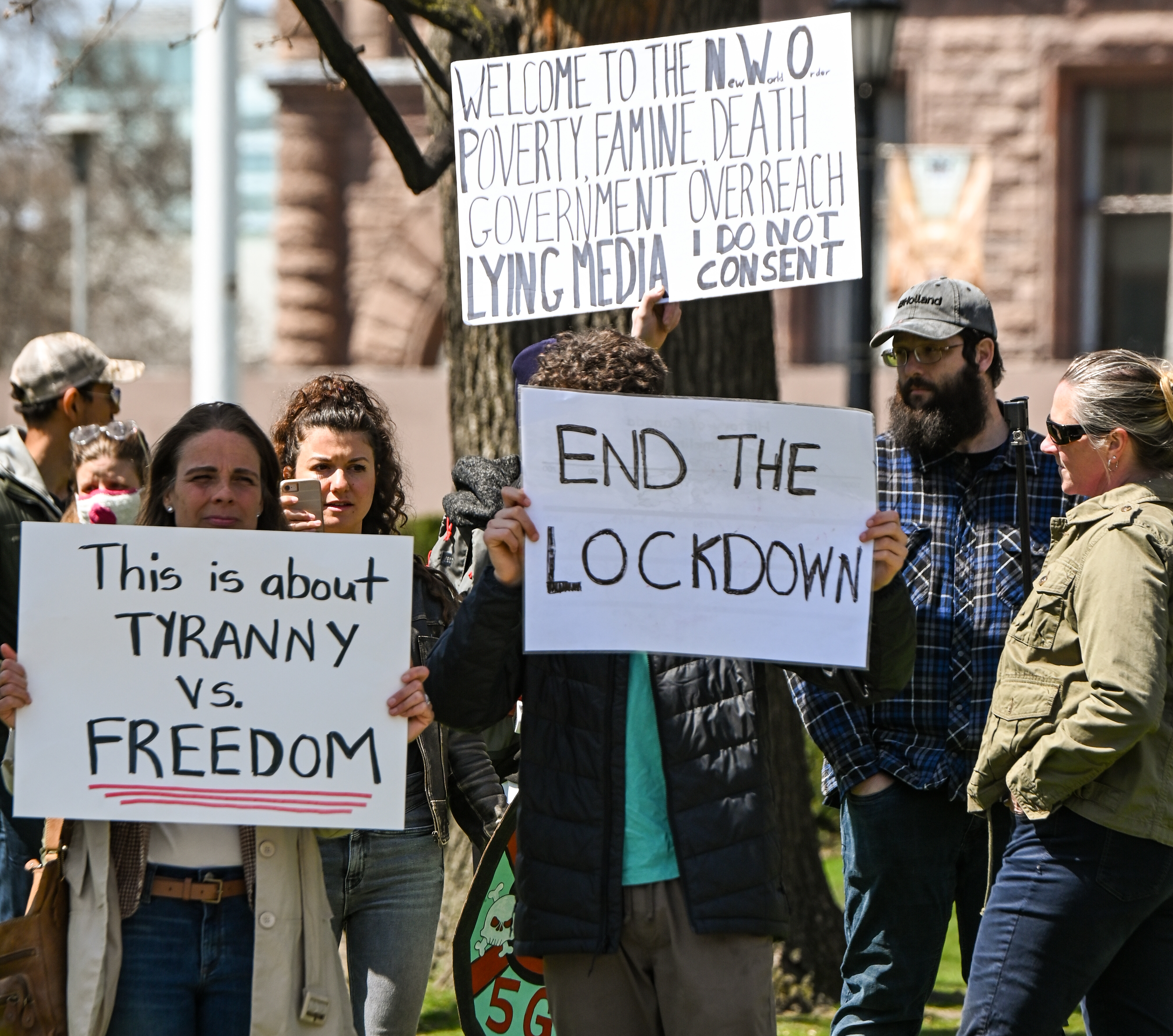
Protests against responses to the COVID-19 pandemic
Protests, demonstrations and strikes occurred around the world against national responses to the COVID-19 pandemic by governmental bodies. Some were driven by the financial hardship resulting from government measures to contain the virus, including restrictions on travel and entertainment, hitting related industries and workers hard. Protests also occurred in opposition to restrictions on people's movements, compulsory wearing of face masks, lockdowns, vaccinations and other measures. Some protests were driven by COVID-19 misinformation, conspiracy theories, far-right and other extremist groups and individuals.
Protests against responses to the COVID-19 pandemic
Local struggles or opposition to government responses to the COVID-19 pandemic
- Revocation of COVID-19 lockdowns, mask mandates, or vaccine mandates
This article lists and summarizes such activities in various countries around the world.
Africa[edit]
Kenya[edit]
The Kenyan government has been accused of extreme measures, with protesters accusing the Kenyan Police of killing at least six people within the first 10 days of the lockdown. Others protested against the forced quarantine of individuals failing to comply with regulations or returning home from abroad, claiming that they had been quarantined for longer than 14 days and made to pay the government for their care.[21] Hundreds protested on 8 May 2020 when the government destroyed 7,000 homes and a market in Kariobangi in an effort to control the virus.[22]
Malawi[edit]
A Malawi high court temporarily barred the government from implementing a 21-day lockdown after it was challenged by the Human Rights Defenders Coalition, after it was argued that more consultation was needed to prevent harm to the poorest and most vulnerable. Small protests had been staged prior to the ruling, in at least three major cities with some protesters stating it was better to contract the virus than die of hunger due to lack of work.[23]
Nigeria[edit]
A group of at least twenty coronavirus patients forced their way out of an isolation facility to protest against alleged improper care and the government's actions which they believed to worsen their conditions.[24] Workers at a construction site rioted against lockdown measures that limited their ability to work on constructing an oil refinery for billionaire Aliko Dangote.[25]
South Africa[edit]
Many residents protested against the policy that food parcel aid would only be going to households that earn below R3600, and demanded action from the South African Social Security Agency.[27] Surfers have also protested to be allowed to surf during the lockdown, that allows exercise but not water activities.[28]
Zimbabwe[edit]
Three young, female opposition activists were reported missing following a protest in Harare, Zimbabwe, over COVID-19 lockdown measures on 15 May 2020. They were later treated at a hospital after asserting they had been abducted and sexually abused by suspected state security agents.[29]